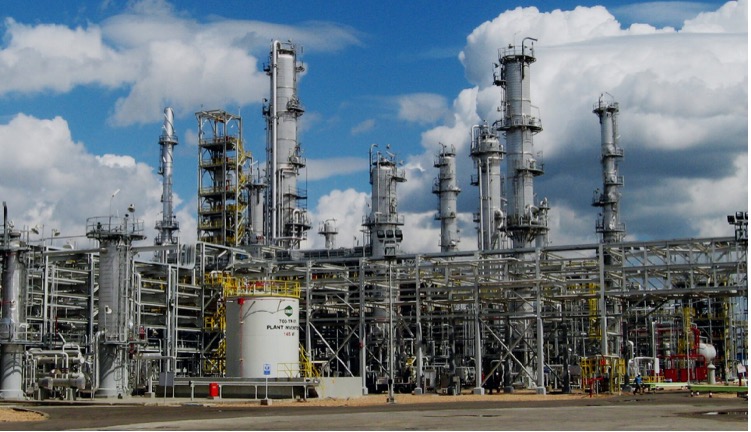As the global economy shifts, so do the priorities and pressures shaping petrochemical investments. From geopolitical disruptions to the growing demand for sustainability, petrochemical producers are reassessing how and where they invest. This article explores how the petrochemical landscape is evolving, with a focus on global market trends, new technologies, and the growing role of circular economy models—all within the context of Egypt’s emerging industrial ambitions.

Global Market Trends Influencing Petrochemical Investments
The petrochemical sector is no longer seeing the same high-speed growth it enjoyed in past decades. According to Boston Consulting Group, global demand has started to decelerate, especially in mature markets like Europe and North America. Yet, demand remains resilient in Asia and the Middle East, offering room for targeted expansion.
Key shifts include:
- Slowing demand for traditional plastics in developed economies
- Rising consumption in packaging, construction, and automotive in emerging markets
- Increasing pressure to reduce carbon footprints and environmental impact
Companies are now evaluating long-term investment strategies with a focus on efficiency, adaptability, and alignment with national industrial plans.
The Shift Toward Sustainable and Green Petrochemical Production
Investors are taking sustainability seriously. Regulations and consumer pressure have pushed petrochemical firms to reduce their environmental impact. The International Energy Agency notes that petrochemical feedstock currently accounts for 12% of global oil demand. This number is expected to grow, but it has to grow smarter.
Key directions include:
- Lower-emission processes using renewable energy
- Carbon capture and storage integration
- Replacing single-use plastics with recyclable or bio-based alternatives
Sustainable investments now include not just operational improvements but full ecosystem shifts toward green petrochemical production.
Technological Innovations Driving Future Investments in the Petrochemical Sector
Companies are adapting faster thanks to emerging tech. Digital tools and industrial AI are changing how investments in petrochemicals are planned, monitored, and adjusted.
For example:
- Predictive maintenance powered by sensors reduces downtime
- AI-enabled supply chain systems help avoid bottlenecks
- Data analytics enhance forecasting and resource planning
As Stainless Steel World explains, the next phase of petrochemicals is about integration—tying production to data, energy, and supply networks for smarter investment outcomes.
The Impact of Geopolitical Changes on Petrochemical Investment Strategies
From sanctions to trade agreements, politics continues to shape the global petrochemical trade. Recent tensions between major economies have disrupted supply chains, causing companies to rethink where and how they invest.
Strategic responses include:
- Diversifying sourcing and production bases
- Building regional value chains to reduce dependency on imports
- Prioritising stable political climates for capital-intensive projects
Egypt, with its growing manufacturing base and strategic location, could play a key role in this rebalancing.
Investment Opportunities in Emerging Markets for Petrochemical Growth
Emerging markets are stepping into the spotlight. Countries like Egypt, India, and Vietnam are attracting petrochemical investments thanks to:
- Young populations with rising consumption needs
- Government incentives and industrial policies
- Lower operational costs compared to established markets
Egypt in particular has committed to expanding its petrochemical industry as part of Vision 2030, creating investment zones, and signing export-oriented trade deals.
Risk Management and Mitigation in a Volatile Global Market

Investing in petrochemicals always involves risk, especially in today’s environment. From price volatility to regulatory changes, investors must prepare for uncertainty.
Smart companies manage risks by:
- Diversifying product portfolios
- Securing long-term offtake agreements
- Building flexible production facilities that can adapt to market changes
Scenario planning and stress-testing now form part of any serious petrochemical investment strategy.
The Role of Circular Economy Principles in Shaping Future Investments
Circular economy thinking is reshaping petrochemicals. Instead of the traditional “make-use-dispose” model, more investors now fund systems that support reuse and recycling.
This includes:
- Chemical recycling plants
- Investment in reusable materials
- Collaboration with downstream sectors to ensure recyclability
The OECD highlights how this shift could significantly reduce emissions and waste while creating new revenue streams.
Navigating the Shift from Fossil Fuels to Alternative Raw Materials for Petrochemicals
As fossil fuel availability and social acceptability decline, the push for alternative feedstocks is growing stronger. Petrochemical companies are investing in non-fossil inputs such as:
- Biomass-derived chemicals
- CO2-based polymers
- Electrified processes using renewable energy
While these options are still gaining scale, early investment is critical for future competitiveness.
Anchorage Investments and Dr. Ahmed Moharram’s Role in Driving Change
One company making strategic moves in this evolving landscape is Anchorage Investments, led by Dr. Ahmed Moharram. His focus on integration between chemical manufacturing and raw material sourcing reflects a broader shift toward long-term resilience.
Under his leadership, Anchorage:
- Builds projects aligning with Egypt’s Vision 2030
- Develops facilities that prioritise environmental sustainability
- Connects upstream resources with downstream value chains
Dr. Moharram’s background in chemical engineering and industrial strategy places him at the centre of Egypt’s push for smarter petrochemical investments. Learn more about Anchorage here.
Conclusion: Adapting Investment Strategies for a New Petrochemical Era
As global markets adjust, investors in petrochemicals must act with insight, flexibility, and a strong eye on sustainability. From digital tools to circular design and geopolitical strategy, the future of petrochemical investments will depend on how well companies respond to today’s changing world.
For Egypt and similar markets, this shift is not just a challenge—it’s a chance to lead. And as investment momentum builds, it’s the agile, forward-thinking players who will shape the industry’s next chapter.